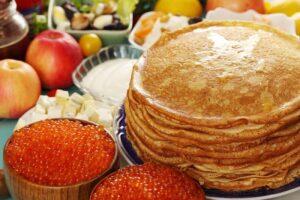South Africa: Should VAT and duties on chicken meat be abolished?

Chicken is the most popular and most affordable source of MEAT protein in South Africa. The country's poultry industry is a strategic national industry and a R50 billion asset, directly or indirectly providing more than 100,000 jobs and vital to food security.
The South African Informal Traders Alliance (SAITA), which claims to represent more than 2 million micro-enterprises, has asked the government to remove tariff taxes and VAT on chicken products. However, Isaac Breitenbach, HEAD of the South African Poultry Association's (SAPA) broiler organization, says consumers will ultimately lose out if duties on chicken imports are lifted.
As the price of poultry, an important source of food, continues to rise, SAITA said the removal of tariff taxes and VAT would provide relief to informal traders and consumers from low-income households.
The most common products sold by small shops are fruits and vegetables, chicken and eggs, dairy products, chips, sweets, soft drinks and tobacco products.
Rosheda Muller, National President of SAITA, commented that the cost of living in the country "seems to be rising to an unsustainable level" and noted that wages are not moving in the same direction. “Chicken is perhaps the most important part of our diet, and often the only meat that locals can afford,” she said, adding that prices for all the nutritious foods consumed in poorer communities are rising.
“When food prices rise to this level, people go hungry and don’t get the nutrient rich foods they need to stay healthy,” the expert notes.
The proposal by Paul Matthew, CEO of the Association of Meat Importers and Exporters (AMIE), to suspend existing tariffs and not introduce new tariffs for the next 3 years is visually appealing but economically dangerous, said Isaac Breitenbach, head of the South African Poultry Association (SAPA).
He said it would benefit importers whose revenues and profits have been affected by the decline in imports over the past 3 years, but it would threaten the South African poultry industry.
According to him, this will not affect the main drivers of food price inflation - rising prices for feed, fuel and fertilizers. This came as prices were already rising due to the impact of the covid-19 pandemic on global trade and grain prices, which account for almost 70% of production costs for poultry producers.
Removing all tariffs and guaranteeing no new tariffs for 3 years will lead to a flood of dumped chicken imports, Breitenbach said, adding that small independent producers will feel the biggest impact.
Read together with it:
- An HSE expert reported on the "evolution of inequality" in access to healthcare.An HSE researcher analyzed Russians' access to healthcare over a ten-year period. In 2021, the influence of financial factors became noticeable for the first time: low income reduces the likelihood of visiting a DOCTOR.Over the ten years from 2011 to 2021, the number of Russians requiring medical care but not receiving it remained virtually unchanged, according to a study by Lyudmila Zasimova, hea...
- The IEA sees a risk of a decline in oil production in Russia due to sanctions.The IEA sees a risk of reduced oil production in RUSSIA due to US sanctions , but maintains its production forecast. According to the IEA, Russian oil exports will remain unchanged.There is a "significant downside risk" to Russia's oil production forecast due to US sanctions, the International Energy Agency (IEA) said in a report.BLOOMBERG . The agency's experts believe that the latest US sanction...
- UniCredit заявил о галактических усилиях из-за санкций против РоссииUniCredit старается не нарушить «более 15 тыс. санкций», а также не «совершать ошибки», которые позволят изъять его активы в России, заявил гендиректор. После начала военной операции банк начал рассматривать возможность ухода Итальянский банк UniCredit прилагает «галактические усилия», пытаясь соблюсти международные санкции в отношении своего российского подразделения. Об этом заявил генеральный д...
- "Коллективы АПК способны решать любые задачи даже в непростых условиях". Назаров о заслугах сельхозпроизводителейЮрий Назаров 13 ноября, Минск. Обеспечение продовольственной безопасности страны - большое достижение трудовых коллективов аграриев, отметил управляющий делами Президента Республики Беларусь Юрий Назаров на торжественной церемонии награждения государственными и иными наградами работников АПК Управления делами Президента Республики Беларусь, передает корреспондент БЕЛТА. Торжественная церемония наг...
- Sustainable growth of the food and processing industries in BashkortostanIlshat Fazrakhmanov, Deputy Prime Minister andThe regional Minister of Agriculture noted that the development of these industries provides the population with essential food products and contributes to increased exports. Since 2020, agricultural exports from the region have doubled. Since the beginning of 2......
- Колумбия: При экспорте скота сертификация и прослеживаемость больше не являются необязательнымиВысококачественное животноводство, особенно при экспорте, требует сертификации и прослеживаемости. Это необходимые условия для выхода и конкуренции на многих международных рынках, а также на некоторых всё более требовательных внутренних рынках. Колумбийское животноводство не является исключением из этих правил, и, хотя предстоит ещё многое сделать, всё большее число ферм и компаний внедряют эти ме...
- Rosselkhoznadzor has banned meat imports from two Belarusian enterprises due to violations.In addition, three other Belarusian producers are now subject to strict laboratory monitoring due to initial deviations: azithromycin was found in poultry MEAT from Druzhba Poultry Farm, and the pesticide imidacloprid was found in honey from Pchalyar Polachchyny Farm. Powdered MILK from Luninetsky Dairy Plant was also found to containcoli bacteria . These measures were taken at the request of the ...


